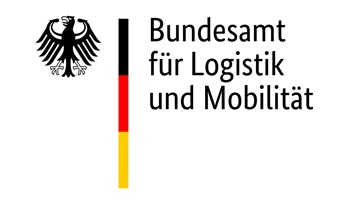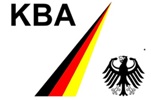Government Obligations for Starting a Transport Company in Germany
 Germany's strategic location at the heart of Europe makes it a hub for logistics and transport services. Establishing a transport company in Germany offers lucrative opportunities, but it also involves adhering to a well-defined set of government obligations. These obligations ensure safety, fair competition, and compliance with national and European regulations. This guide provides a detailed overview of the key requirements to start a transport company in Germany, covering business registration, licensing, insurance, taxation, and operational compliance.
Germany's strategic location at the heart of Europe makes it a hub for logistics and transport services. Establishing a transport company in Germany offers lucrative opportunities, but it also involves adhering to a well-defined set of government obligations. These obligations ensure safety, fair competition, and compliance with national and European regulations. This guide provides a detailed overview of the key requirements to start a transport company in Germany, covering business registration, licensing, insurance, taxation, and operational compliance.
Business Registration and Legal Structure
Choosing a Legal Structure: Before registering a transport business, you must decide on its legal form. Common options include:
- Sole Proprietorship (Einzelunternehmen)
- Suitable for small-scale operations. Einzelunternehmen (Deutschland)
- Partnership (Personengesellschaft):
- For businesses with multiple owners. Personengesellschaft
- Limited Liability Company (GmbH):
- Popular for medium to large enterprises; requires a minimum capital of €25,000. Gesellschaft mit beschränkter Haftung
- Stock Corporation (AG):
- Typically for large-scale businesses with significant capital investment. Aktiengesellschaft (Deutschland)
- Trade Office (Gewerbeamt):
-
 Register your business locally and obtain a trade license (Gewerbeschein). Der Gewerbeschein
Register your business locally and obtain a trade license (Gewerbeschein). Der Gewerbeschein
- Commercial Register (Handelsregister):
-
 Required for GmbH, AG, or larger partnerships. Registration involves notarized documents and listing with the local court. Registerportal der Länder
Required for GmbH, AG, or larger partnerships. Registration involves notarized documents and listing with the local court. Registerportal der Länder
- Tax Office (Finanzamt):
-
 Register for tax purposes and obtain a tax identification number (Steuernummer). Bundeszentralamtes für Steuern
Register for tax purposes and obtain a tax identification number (Steuernummer). Bundeszentralamtes für Steuern
Licensing Requirements
- EU Community License
-
 Transport companies engaged in cross-border goods transport within the EU must obtain an EU Community License. Application submitted to the Federal Office for Goods Transport (BAG). Requirements include: Financial Stability: Demonstrate a minimum of €9,000 for the first vehicle and €5,000 for each additional vehicle. Professional Competence: At least one manager must hold a Certificate of Professional Competence (CPC) in road transport. Good Repute: Proof of clean records for the company and its managers regarding criminal or transport-related offenses. Bundesamt für Logistik und Mobilität
Transport companies engaged in cross-border goods transport within the EU must obtain an EU Community License. Application submitted to the Federal Office for Goods Transport (BAG). Requirements include: Financial Stability: Demonstrate a minimum of €9,000 for the first vehicle and €5,000 for each additional vehicle. Professional Competence: At least one manager must hold a Certificate of Professional Competence (CPC) in road transport. Good Repute: Proof of clean records for the company and its managers regarding criminal or transport-related offenses. Bundesamt für Logistik und Mobilität
- National Operating License
- For domestic operations, a national transport license is required under German commercial law. This license ensures compliance with local regulations.
- ADR Certification
- If your business involves transporting hazardous materials, additional certification under the European Agreement concerning the International Carriage of Dangerous Goods by Road (ADR) is mandatory. About the ADR
Vehicle Registration and Compliance
- Registering Vehicles:
-
 All vehicles must be registered with the Kraftfahrt-Bundesamt (KBA), the Federal Motor Transport Authority. Submit documentation including proof of ownership, roadworthiness test results, and insurance certificates. Kraftfahrt-Bundesamt
All vehicles must be registered with the Kraftfahrt-Bundesamt (KBA), the Federal Motor Transport Authority. Submit documentation including proof of ownership, roadworthiness test results, and insurance certificates. Kraftfahrt-Bundesamt
- Vehicle Standards:
- Vehicles must meet German and EU safety and environmental standards, including Euro 6 emission standards. Regular inspections (Hauptuntersuchung - HU) are mandatory to maintain roadworthiness. HU und AU: Alles Wissenswerte zum TÜV
Insurance Obligations
- Mandatory Insurances:
- Liability Insurance: Covers damages caused to third parties. Vehicle Insurance: Comprehensive coverage for fleet vehicles. Cargo Insurance: Protects goods being transported.
- Additional Insurances:
- Consider business liability insurance and employer liability insurance to mitigate risks related to employees and operations.
Employment Regulations
- Hiring Professional Drivers:
- Drivers must possess a valid Class C or CE driver’s license for commercial vehicles. Drivers are also required to complete training for a Certificate of Professional Competence (CPC) under the EU’s Driver Training Directive. Driver CPC
- Employment Contracts:
- Comply with German labor laws regarding contracts, working hours, wages, and social security contributions. Drivers must be registered for health, pension, and unemployment insurance.
- Compliance with Driving Hours and Rest Periods:
- Follow Regulation (EC) No 561/2006, which limits daily and weekly driving hours and mandates rest periods. Equip vehicles with digital tachographs to monitor compliance. Regulation (EC) No 561/2006 as regards minimum requirements on maximum daily and weekly driving times ...
Taxation Requirements
- Corporate Taxation:
- Transport companies are subject to corporate tax (Körperschaftssteuer) and trade tax (Gewerbesteuer). Register with the Finanzamt for VAT (Mehrwertsteuer) purposes if your annual revenue exceeds €22,000.
- Road Tolls:
- Heavy goods vehicles (HGVs) are required to pay tolls under the Lkw-Maut system, managed by Toll Collect. Tolls depend on vehicle weight, distance traveled, and emission category.
Environmental Compliance
- Emission Standards:
- Adhere to strict Euro 6 emission standards for vehicles to reduce pollutants. Access to Low Emission Zones (Umweltzonen) in urban areas requires vehicles to meet environmental requirements. Umweltzonen in Deutschland
- Sustainability Initiatives:
- Consider alternative fuels (e.g., electric or hydrogen vehicles) to align with Germany’s green transport policies. Participation in government incentive programs for eco-friendly fleets can provide financial benefits.
Operational Compliance
- Load Securing and Safety:
- Follow regulations for securing loads to prevent accidents or spillage. Vehicles must carry safety equipment, such as fire extinguishers and first-aid kits.
- Documentation:
- Maintain accurate records of operations, including driver hours, cargo manifests, and vehicle maintenance logs.
Enforcement and Penalties
Authorities such as the BAG and local police conduct regular checks on transport companies to ensure compliance. Penalties for non-compliance include: Fines for missing licenses, unsafe vehicles, or overworked drivers. Suspension of operating licenses for repeated violations.
Future Trends and Considerations
- Digitalization:
- Embrace digital tools for fleet management, electronic documentation, and real-time tracking.
- Green Transport:
- Germany’s push for decarbonization in transport encourages companies to adopt electric or low-emission vehicles.
- Market Opportunities:
- Germany’s position as a logistics hub offers significant opportunities for growth, particularly in e-commerce and cross-border trade.
Conclusion
Starting a transport company in Germany involves navigating a complex regulatory landscape. By fulfilling government obligations for business registration, licensing, vehicle compliance, and environmental standards, entrepreneurs can build a compliant and sustainable transport business. Staying informed about regulatory updates and embracing innovation will further enhance operational success in this dynamic industry.
eXus Dev